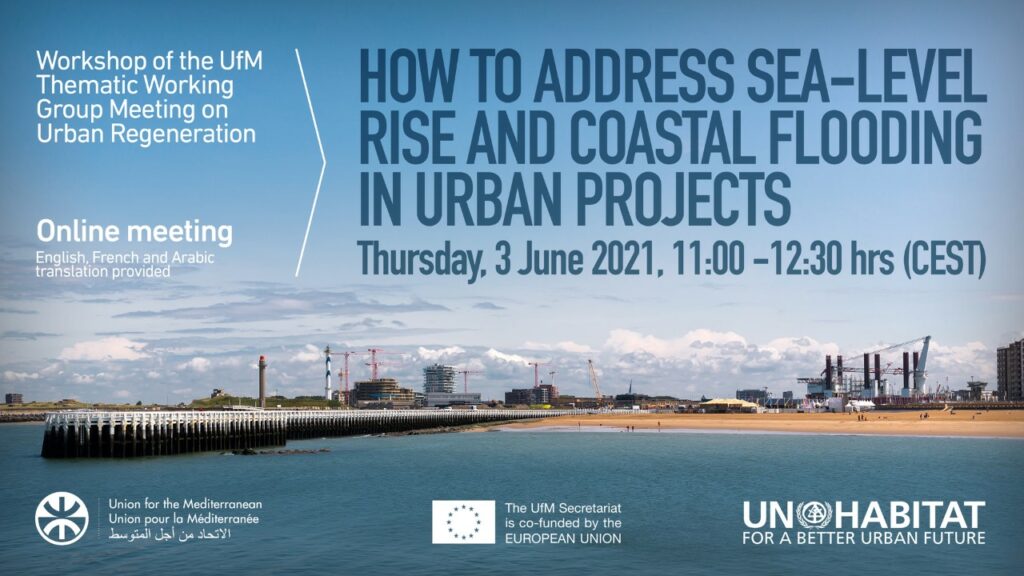
In the context of the UfM Strategic Urban Development Action Plan 2040, UfM Member States are advised to map trends, risks and challenges with a view to factoring them in their national urban policies (NUPs) and integrated city development strategies (ICDSs).
The meeting was a first step to this end, and it proposed to a first common reflection of how urban projects should take into account coastal flooding and sea-level rise, using adaptation measures such as the promotion of nature-based solutions. During this meeting one of the MedECC Coordinators, Prof. Dr Wolfgang Cramer, presented the overview of the coastal risks in the Mediterranean region.
The meeting, which was co-organized with UN-Habitat, was mainly addressed to UfM focal points for urban regeneration and public authorities in charge of urban projects in UfM Member States.
There were 149 registered participants, including representatives from national and local authorities, universities, and organizations, such as the CMI, MedCities, UCLG, ENI-CBC-MED programme, Green Climate Fund, EIB, Islamic Development Bank, Saudi Green Building Forum, UNDP and the Charter Cities Institute.
Results
The workshop helped to raise awareness about the importance of factoring science-led and evidence-based risk assessments on coastal flooding and sea-level rise into National Urban Policies (NUPs), Integrated City Development Strategies (ICDSs), and spatial intervention projects.
AGENDA
11:00 – 11:05 : Welcoming address
11:05 – 11:15 : Going under: Why cities need to think, plan and build differently to combat climate disasters? Shipra Narang Suri, UN-Habitat, Chief, Urban Practices Branch, Global Solutions Division
11:15 – 11:25: Water as leverage for resilient cities, Henk Ovink, Special Envoy for International Water Affairs for the Kingdom of the Netherlands
11:25 – 11:35: Mediterranean Coastal Risks, Wolfgang Cramer (CNRS, France, Mediterranean Institute for terrestrial and marine Biodiversity and Ecology (IMBE)/ MedECC)
11:35 – 11:45 : Case Study: Copenhagen, Denmark, Lykke Leonardsen, City of Copenhagen
11:45 – 11:55: Case Study: Alexandria, Egypt
11:55 – 12:25: Panel discussion Moderated by Carola Hein, TU Delft
12:25 – 12:30: Conclusion
